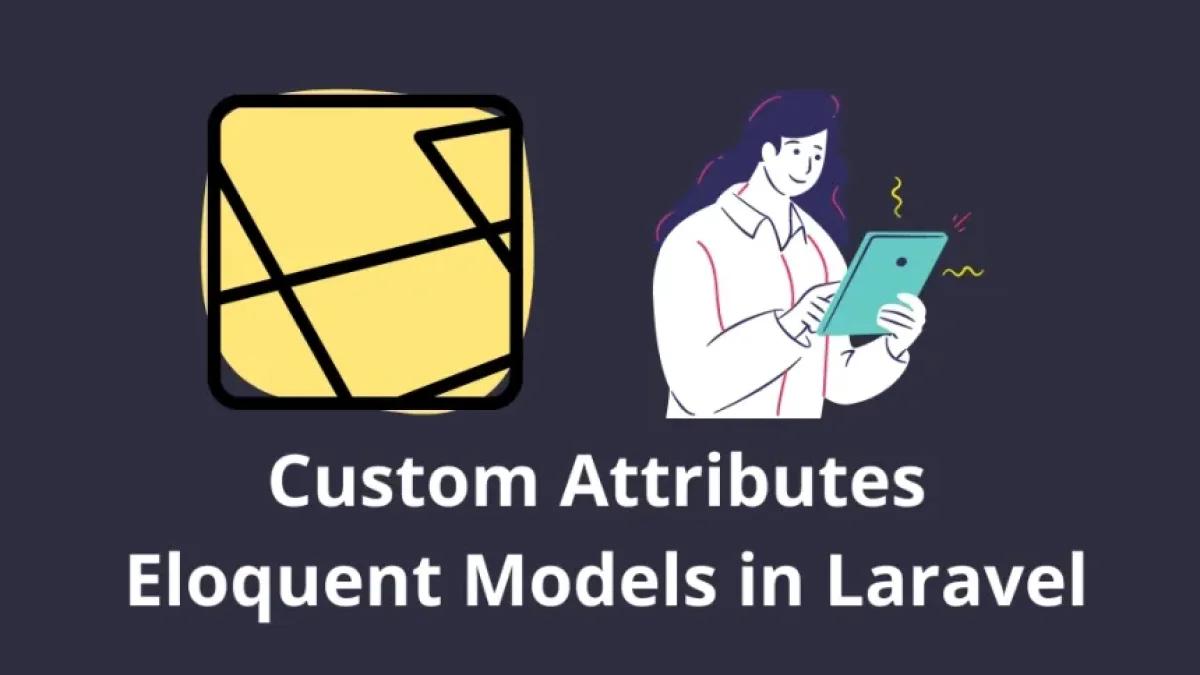What is Eloquent ORM and what is it used for in Laravel?


Eloquent ORM (Object-Relational Mapping) is one of the most powerful and flexible tools Laravel offers for interacting with databases. By understanding how Eloquent works and how it can enhance your Laravel development, you can optimize your projects' efficiency and scalability. This article delves into what Eloquent ORM is, how it functions, and the benefits it brings to Laravel development.
What is Eloquent ORM?
Eloquent ORM is a built-in Object-Relational Mapping system in Laravel that simplifies database interactions. In simple terms, Eloquent converts database tables into classes and records into objects, allowing you to manipulate data more intuitively using object-oriented programming.
History and Evolution of Eloquent
Eloquent ORM was introduced in Laravel to simplify database interactions compared to traditional methods. Since its introduction, it has evolved to support a wide range of advanced features, including complex relationships, custom queries, and mutators.
How Does Eloquent ORM Work?
Eloquent ORM uses a series of conventions and features to work with data efficiently. Here are some key concepts:
Read also
Models
Models in Eloquent represent database tables. Each model corresponds to a table, and each model instance corresponds to a row in that table. Models are defined as classes in Laravel and extend from Illuminate\Database\Eloquent\Model.
namespace App\Models;
use Illuminate\Database\Eloquent\Model;
class User extends Model
{
// Model configuration
}Queries
Eloquent provides a fluent API for querying the database. It uses chained methods to build queries intuitively.
$users = User::where('status', 'active')->get();Relationships
Eloquent handles relationships between models easily. You can define one-to-one, one-to-many, many-to-many, and more.
Read also
- One-to-One Relationship:
class User extends Model
{
public function profile()
{
return $this->hasOne(Profile::class);
}
}- One-to-Many Relationship:
class Post extends Model
{
public function comments()
{
return $this->hasMany(Comment::class);
}
}- Many-to-Many Relationship:
class User extends Model
{
public function roles()
{
return $this->belongsToMany(Role::class);
}
}Eager Loading
To avoid performance issues related to N+1 queries, Eloquent allows for eager loading of relationships.
$users = User::with('profile')->get();Benefits of Using Eloquent ORM
Eloquent ORM offers several benefits that can significantly enhance Laravel development:
Abstraction and Simplicity
Eloquent simplifies database interaction by providing an abstraction layer. This allows developers to work with data using object-oriented syntax rather than raw SQL.
Integration with Laravel
Eloquent is deeply integrated with the Laravel ecosystem, leveraging features such as validations, events, and middleware. This makes it easier to build consistent and robust applications.
Flexibility and Expressiveness
The ability to define relationships between models and build complex queries fluently provides great flexibility. Eloquent helps write clean and expressive code.
Performance Optimization
Eager Loading and other optimization techniques allow you to handle large volumes of data efficiently, reducing the number of database queries and improving overall performance.
Common Use Cases
CRUD Applications
Eloquent is ideal for applications that require basic Create, Read, Update, and Delete (CRUD) operations. Its intuitive syntax and integration with forms and validations simplify these operations.
Applications with Complex Relationships
If your application needs to manage relationships between different types of data, Eloquent makes defining and using these relationships easy, allowing for straightforward complex queries.
Agile Development
The ease of quickly creating models and relationships enables agile and rapid development, helping to accelerate the development lifecycle.
Considerations and Best Practices
While Eloquent ORM is a powerful tool, it's important to keep in mind some considerations to use it effectively:
- Avoid N+1 Queries: Use Eager Loading to prevent performance issues related to multiple database queries.
- Optimize Queries: Ensure efficient queries and use database indexing when necessary.
- Maintain Clean Code: Although Eloquent simplifies many tasks, follow good coding practices to keep your code clean and organized.
Conclusion
Eloquent ORM is a fundamental tool in Laravel that provides an efficient and expressive way to interact with databases. Its integration with Laravel, ability to handle complex relationships, and flexibility make it a preferred choice for many developers. By understanding and effectively utilizing Eloquent, you can build robust and optimized applications with ease.
If you have more questions about Eloquent ORM or need assistance with your Laravel projects, explore the official Laravel documentation or seek support from the community.



















